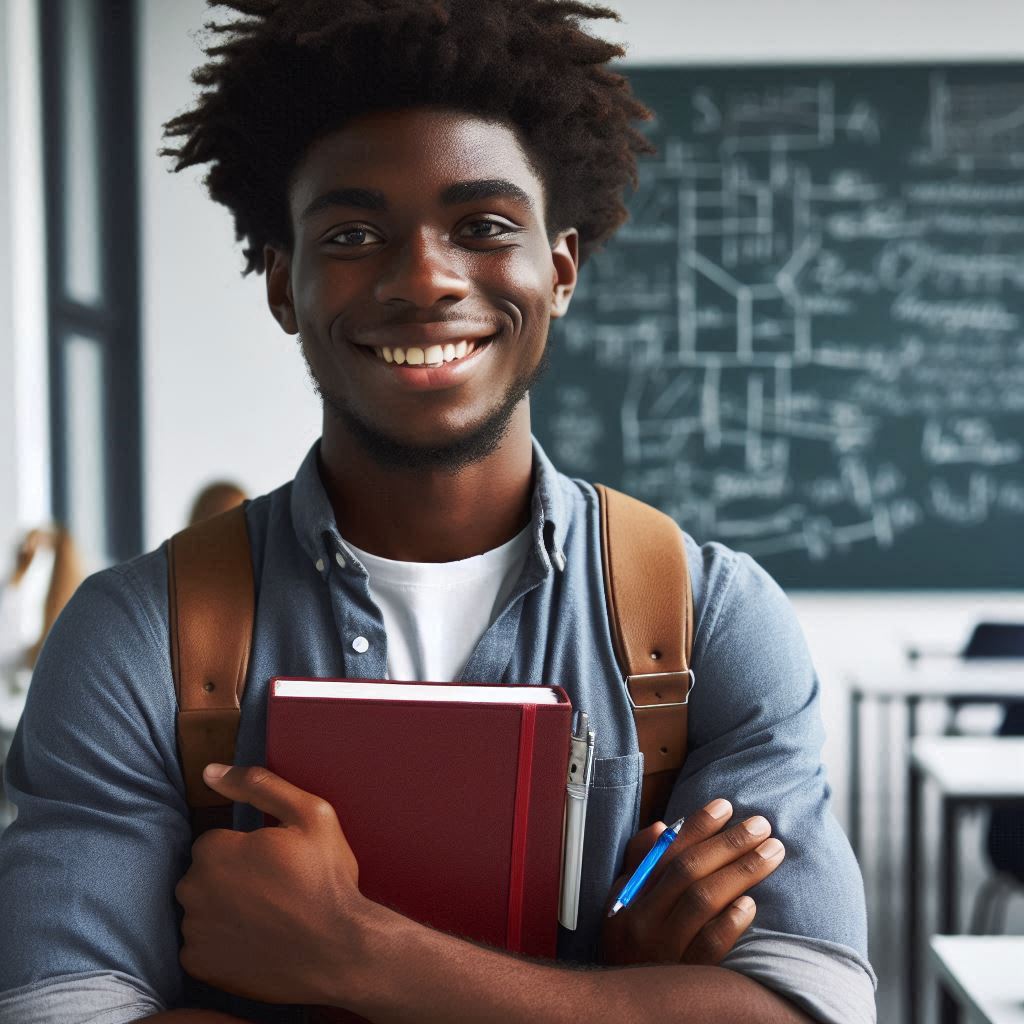Introduction
Special education in Nigeria refers to tailored educational programs for individuals with disabilities or learning difficulties.
Initially, special education was limited in Nigeria, but over the years, there has been significant progress and development in this field.
Special education plays a crucial role in Nigeria by providing support and education to individuals who may not thrive in traditional educational settings.
It ensures that every child has access to quality education, regardless of their challenges or disabilities.
In the Nigerian context, special education helps to promote inclusivity and equal opportunities for all students.
It equips individuals with the necessary skills and knowledge to lead independent and fulfilling lives, contributing positively to society.
Legal Framework for Special Education in Nigeria
Policies and laws governing special education
Policies and laws play a crucial role in governing special education in Nigeria.
The Education for All Handicapped Children Act guarantees the rights of individuals with disabilities.
This law ensures access to free and appropriate education for all children with disabilities.
Rights of Individuals with Disabilities in Nigeria
Individuals with disabilities have the right to equal opportunities in education.
They are entitled to reasonable accommodations to ensure their success in school.
Special education laws protect individuals from discrimination based on their disabilities.
Challenges and Gaps in Implementation of Special Education Laws
One major challenge is the lack of awareness and understanding of special education laws.
Inadequate funding and resources hinder the effective implementation of special education programs.
There is a shortage of trained special education teachers to cater to the needs of students.
Some schools lack the necessary facilities and infrastructure to support students with disabilities.
The legal framework for special education in Nigeria is still evolving and requires continuous improvement.
Read: Professional Associations for Secretarial Educators
Education System for Special Needs in Nigeria
Types of special needs and disabilities addressed in Nigeria
Nigeria’s special education system caters to a wide range of special needs and disabilities.
Some of the common special needs addressed include learning disabilities, autism spectrum disorders, and intellectual disabilities.
Physical disabilities such as hearing impairments, visual impairments, and mobility impairments are also addressed in special education programs.
Mental health conditions like ADHD, schizophrenia, and depression are part of the spectrum of special needs addressed in Nigeria.
Availability of special education programs and schools
Special education programs and schools are available in major cities across Nigeria.
Government-run schools, as well as private institutions, cater to students with special needs and disabilities.
These schools offer specialized education programs tailored to the unique needs of each student.
Teachers in these programs are trained to provide individualized support and interventions to help students succeed academically and socially.
Inclusive education practices and initiatives
In recent years, Nigeria has made efforts to promote inclusive education practices for students with special needs.
Inclusive education initiatives aim to integrate students with disabilities into mainstream schools and classrooms.
This approach fosters a sense of belonging and acceptance among all students while providing access to quality education for children with special needs.
Training programs for teachers and school administrators are being implemented to promote inclusive practices and create supportive learning environments for all students.
Overall, Nigeria is working towards a more inclusive education system that values diversity and supports the academic and social development of all students, regardless of their abilities or disabilities.
Read: Influence of Secretarial Education on Admin Roles
Special Education Curriculum and Teaching Methods
Adaptations and modifications in the curriculum for special needs students
Special education curriculum involves the modification of regular education curriculum to suit the needs of students with disabilities.
Teachers may need to adapt lessons, materials, and assessments to ensure that students with special needs can access and engage with the content effectively.
These adaptations may include providing additional visual aids, using assistive technology, breaking down complex tasks into smaller steps, allowing for extended time on assignments, and offering alternative ways for students to demonstrate their understanding.
It is essential for special education teachers to understand the specific needs of each student and make individualized accommodations accordingly.
By implementing these adaptations, educators can create a more inclusive learning environment that supports the diverse needs of students with disabilities.
Teaching strategies and methods for special education
Teaching students with special needs requires a variety of strategies and methods to ensure their learning needs are met effectively.
One common approach is differentiated instruction, which involves tailoring lessons to accommodate the diverse learning styles and abilities of students.
Special education teachers may use multisensory techniques, hands-on activities, visual aids, manipulatives, and assistive technology to support the learning process.
Transform Your Career with Expert Guidance
Get personalized mentorship consulting that’s tailored to your unique path. Our expert advice is actionable and exclusive.
Get StartedThese strategies help students with disabilities to engage with the curriculum, participate actively in class, and make meaningful progress in their academic and social skills.
Collaboration with other professionals, such as speech therapists, occupational therapists, and psychologists, is also crucial in developing comprehensive intervention plans for students with special needs.
By working together as a team, educators can provide a holistic approach to supporting the overall development and well-being of students with disabilities.
Training and qualifications for special education teachers
Special education teachers play a vital role in supporting students with disabilities and ensuring they receive a quality education.
To effectively meet the needs of these students, educators must undergo specialized training and acquire specific qualifications in the field of special education.
In Nigeria, special education teachers typically hold a degree in Special Education, Educational Psychology, or a related field.
They also receive additional training in areas such as behavior management, inclusive education practices, curriculum development, and assessment strategies for students with disabilities.
Continuous professional development is essential for special education teachers to stay up-to-date with the latest research, trends, and best practices in the field.
By pursuing ongoing training and professional certifications, educators can enhance their skills, knowledge, and abilities to better serve students with special needs effectively.
In essence, the curriculum and teaching methods in special education are designed to cater to the unique needs of students with disabilities.
By adapting curriculum, implementing effective teaching strategies, and receiving specialized training, special education teachers can create an inclusive learning environment where all students have the opportunity to succeed and thrive.
Read: Impact of Sport Science on Nigerian Sports Teams

Support Services and Resources for Special Education
Special education in Nigeria is supported by a variety of services and resources to ensure that students with special needs receive the appropriate care and education they need to thrive.
These support services play a critical role in helping individuals with disabilities reach their full potential.
Availability of Assistive Technologies and Resources
One key aspect of support services for special education in Nigeria is the availability of assistive technologies and resources.
These tools are designed to help individuals with disabilities overcome barriers to learning and communicate effectively.
Schools and specialized centers often have access to equipment such as braille machines, hearing aids, and communication devices, which can greatly enhance the educational experience for students with special needs.
Role of Support Staff
Support staff such as speech therapists, occupational therapists, and psychologists play a vital role in the education of students with special needs.
These professionals work closely with teachers and parents to develop individualized education plans (IEPs) that address the unique needs of each student.
They provide direct services, evaluations, and recommendations to help students succeed in the classroom and beyond.
Collaboration Between Schools, Parents, and Community Organizations
Collaboration is essential in supporting special needs students in Nigeria.
Schools, parents, and community organizations must work together to create a supportive and inclusive environment for individuals with disabilities.
This collaboration can involve sharing information, resources, and best practices to ensure that students receive the necessary support and accommodations to succeed.
By working together, stakeholders can help break down barriers and create opportunities for all students to thrive.
In fact, support services and resources play a crucial role in the success of special education in Nigeria.
To better meet students’ needs, the education system ensures assistive technologies are available.
Support staff engage actively with students. Stakeholders collaborate closely to help students with disabilities achieve their full potential.
Read: Key Sport Science Organizations in Nigeria
Challenges and Issues in Special Education in Nigeria
Special education in Nigeria faces several challenges that hinder the effective implementation of programs and services for individuals with disabilities.
These challenges range from funding issues to societal attitudes towards disability.
Funding and budgetary constraints for special education programs
One of the major challenges facing special education in Nigeria is the lack of adequate funding and budgetary allocations for special education programs.
This results in limited resources, inadequate facilities, and a shortage of trained professionals in the field of special education.
Stigma and discrimination against individuals with disabilities
Another significant challenge in special education in Nigeria is the pervasive stigma and discrimination against individuals with disabilities.
This often leads to exclusion, marginalization, and limited access to education and other opportunities for people with disabilities.
Lack of awareness and advocacy for special education in Nigeria
There is a general lack of awareness and advocacy for special education in Nigeria, which contributes to the marginalization of individuals with disabilities.
Many people in the society are unaware of the needs and rights of individuals with disabilities, leading to inadequate support and resources for special education programs.
To address these challenges, the government must promote inclusivity in special education in Nigeria.
Civil society organizations should collaborate to provide adequate funding for special education programs.
The general public needs to raise awareness about the importance of special education.
Working together, these groups can make a significant impact on special education in Nigeria.
By creating a more inclusive and supportive environment, we can ensure that individuals with disabilities have equal access to education and opportunities for growth and development.
Learn More: Business Education and Corporate Social Responsibility
Conclusion
Special education in Nigeria faces several challenges, including lack of funding and resources.
Despite these challenges, there has been progress in recent years with the implementation of inclusive education policies.
It is vital for the government and stakeholders to work together to improve special education services in Nigeria.
Ensuring equal opportunities for individuals with disabilities is crucial for the overall development of the country.
By focusing on inclusive education and providing necessary support, we can create a more inclusive society for all.
Let us all strive to make a difference in the lives of individuals with disabilities and promote equal opportunities for everyone.
Together, we can build a brighter future for Nigeria by investing in special education and inclusive practices.




